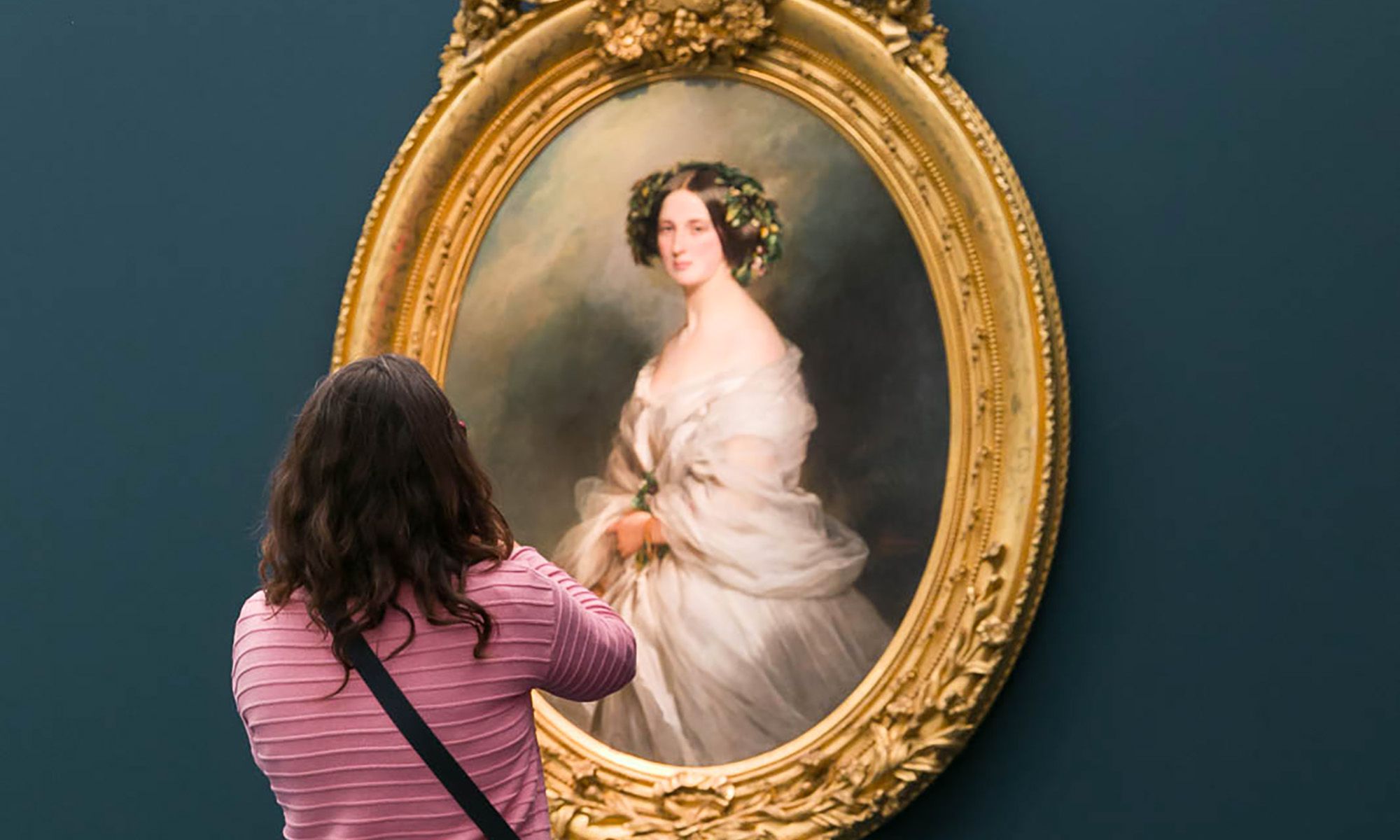A visitor to the Robilant + Voena stand at Frieze Masters in London in 2019 Photo by Mark Blower. Courtesy of Mark Blower / Frieze, via Flickr
The curator Virginia Brilliant has dropped the lawsuit she filed in May against Edmondo di Robilant, Marco Voena and their eponymous international dealership, Robilant + Voena. Brilliant’s lawyer, Mitchell Cantor, confirmed to The Art Newspaper that the move was “pursuant to a confidential settlement agreement by which all parties are bound”.
“We are pleased that Dr Brilliant has withdrawn the lawsuit against us, though we regret that it was ever filed in the first place. We have always wished only the best for Virginia, and continue to do so,” Robilant and Voena said through a spokesperson. “We are glad that this unfortunate matter is behind us.”
The concord ends a relatively short but hair-raising legal dispute centred on one of the trade's leading commercial galleries for Old Master and post-war Italian art. Brilliant, who worked as an independent consultant for Robilant + Voena for more than four years starting in late 2019, levelled a litany of accusations against the defendants in a complaint filed on 3 May 2024. The allegations included breach of contract, discriminatory labour practices, sexual harassment and the fostering of “a toxic workplace environment” in which the co-founders “repeatedly, regularly and constantly [made] misogynistic, antisemitic, racist and homophobic comments in the presence of and directed toward” Brilliant, the complaint stated.
Brilliant had been seeking at least $3m plus additional damages to be determined in court, as well as the reimbursement of her legal fees. Among her petitions were $580,000 for alleged uncompensated labour; around $200,000 as reimbursement for cancer treatments that, in Brilliant’s telling, Robilant and Voena had agreed to cover despite healthcare being excluded from her compensation package; and a $57,500 commission from the sale of an Orsola Caccia painting in December 2023.
The defendants responded by filing a partial motion to dismiss Brilliant’s complaint with the New York State Supreme Court on 3 July. A memorandum supporting that motion called the lawsuit “replete with misinformation in what appears to be a bizarre attempt to harm the sterling reputations of” Robilant, Voena and their gallery.
In the memorandum, Robilant and Voena’s lawyer argued that Brilliant’s uncompensated labour claims relied entirely upon her “subjective belief that her work was worth more than what she had agreed to accept as payment”, and that the complaint “fails to even remotely allege facts sufficient to state the existence of any enforceable contract” regarding the reimbursement of her medical costs. It also stated that Robilant and Voena possess “documentary evidence” that “establishes without doubt” that Brilliant received payment in full for the Caccia commission—the amount of which, it alleges, her complaint erroneously inflated by $32,500.
The memorandum went on to attest that several of Brilliant’s accusations of enduring a “toxic workplace environment” and “sexual harassment and discrimination” should be dismissed for attempting to stand on common law, contrary to precedents establishing that New York state has only recognised such claims when they are based on specific statutes. (This line of argument would have left intact those of her allegations couched in the New York City Human Rights Law and New York State Human Rights Law.) It also asserted that neither Robilant nor Voena could be personally sued in New York in the first place since they do not reside, own property or maintain homes in the state and lack all other connections that could make them subject to New York law.
The settlement between Brilliant, Robilant and Voena ensures that none of these arguments will be decided by a judge or jury. It remains to be seen whether Brilliant’s experience on the for-profit side of the art trade will motivate her to return to the non-profit sector, where she was most recently the head of the European paintings department at the Fine Art Museums of San Francisco. Robilant and Voena will continue operating their galleries in London, New York, Paris and Milan. And the accusations volleyed between the parties will become another set neutralised by a confidential agreement in an increasingly litigious art industry.

